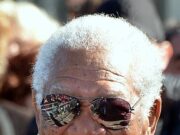Here are top 20 most important inventions of all time
- Fire: Fire was discovered rather than invented by humans, but it was a crucial breakthrough for our survival, cooking, protection and culture. Fire dates back to about two million years ago.
- Wheel: The wheel was invented by Mesopotamians around 3500 B.C. for pottery making, and later used for chariots, carts and vehicles. The wheel revolutionized transportation and commerce.
- Printing press: The printing press was invented by Johannes Gutenberg in the 15th century. It enabled the mass production of books and the spread of knowledge, literacy and culture.
- Penicillin: Penicillin was discovered by Alexander Fleming in 1928. It was the first antibiotic to fight bacterial infections and save millions of lives.
- Compass: The compass was invented by the Chinese between 300 and 200 B.C. It was a navigational device that used a magnetic needle to point to the cardinal directions. The compass facilitated exploration, trade and mapping.
- Light bulb: The light bulb was invented by Thomas Edison in 1879. It was an electric device that produced light from a filament heated by a current. The light bulb illuminated homes, streets and factories.
- Telephone: The telephone was invented by Alexander Graham Bell in 1876. It was a device that transmitted sound over a wire or wireless connection. The telephone enabled instant communication over long distances.
- Internal combustion engine: The internal combustion engine was invented by Nikolaus Otto in 1876. It was a machine that converted chemical energy into mechanical power by burning fuel and air. The internal combustion engine powered cars, planes, ships and generators.
- Contraceptives: Contraceptives are methods or devices that prevent pregnancy or sexually transmitted diseases. They include condoms, pills, implants, injections and sterilization. Contraceptives gave people more control over their reproduction, health and sexuality.
- Internet: The internet is a global network of computers that communicate and exchange information using protocols and standards. It emerged from the ARPANET project in the 1960s and expanded rapidly in the 1990s with the World Wide Web. The internet enabled access to vast amounts of information, services, entertainment and social interaction.
- Computer: The computer is an electronic device that processes data according to a set of instructions or programs. It can perform complex calculations, store and retrieve information, and control other devices. The computer evolved from mechanical machines to electronic circuits to microchips.
- Vaccines: Vaccines are substances that stimulate the immune system to produce antibodies against specific diseases. They can prevent or reduce the severity of infections caused by viruses or bacteria. Vaccines have eradicated or controlled many deadly diseases such as smallpox, polio, measles and tetanus.
- Electricity: Electricity is the flow of electric charge through a conductor or a circuit. It can be generated from various sources such as fossil fuels, nuclear fission, solar energy or wind power. Electricity can be used for lighting, heating, cooling, communication, transportation and industry.
- Refrigeration: Refrigeration is the process of lowering the temperature of a substance or a space below the ambient level by removing heat. It can be achieved by using mechanical devices such as compressors or evaporators, or by using natural methods such as ice or evaporation. Refrigeration can preserve food, medicine and other perishable goods, as well as provide comfort and convenience.
- Airplane: The airplane is a vehicle that flies in the air by generating lift from its wings and thrust from its engines or propellers. It was invented by the Wright brothers in 1903. The airplane enabled faster and farther travel, exploration, warfare and commerce.
- Radio: The radio is a device that transmits and receives electromagnetic waves that carry sound or data over long distances without wires. It was invented by Guglielmo Marconi in 1895. The radio enabled broadcasting of news, music, entertainment and communication.
- Television: The television is a device that receives and displays moving images and sound on a screen using electrical signals or digital data. It was invented by John Logie Baird in 1925. The television provided visual information, education and entertainment to millions of people.
- Plastic: Plastic is a synthetic material made from organic polymers that can be molded into various shapes and forms when heated or pressurized. It was invented by Leo Baekeland in 1907 with the creation of Bakelite. Plastic is cheap, durable, versatile and widely used for packaging, clothing, toys, furniture, medical devices and more.
- Paper: Paper is a thin sheet of material made from cellulose fibers derived from wood, grasses or other plants. It was invented by the Chinese around 100 B.C… Paper enabled writing, printing, drawing and wrapping.
- Nuclear fission: Nuclear fission is the process of splitting an atomic nucleus into two smaller nuclei with the release of energy and neutrons. It was discovered by Otto Hahn and Fritz Strassmann in 1938 with the help of Lise Meitner and Otto Frisch who explained it theoretically . Nuclear fission can be used for generating electricity or making weapons.
Facebook Comments


































